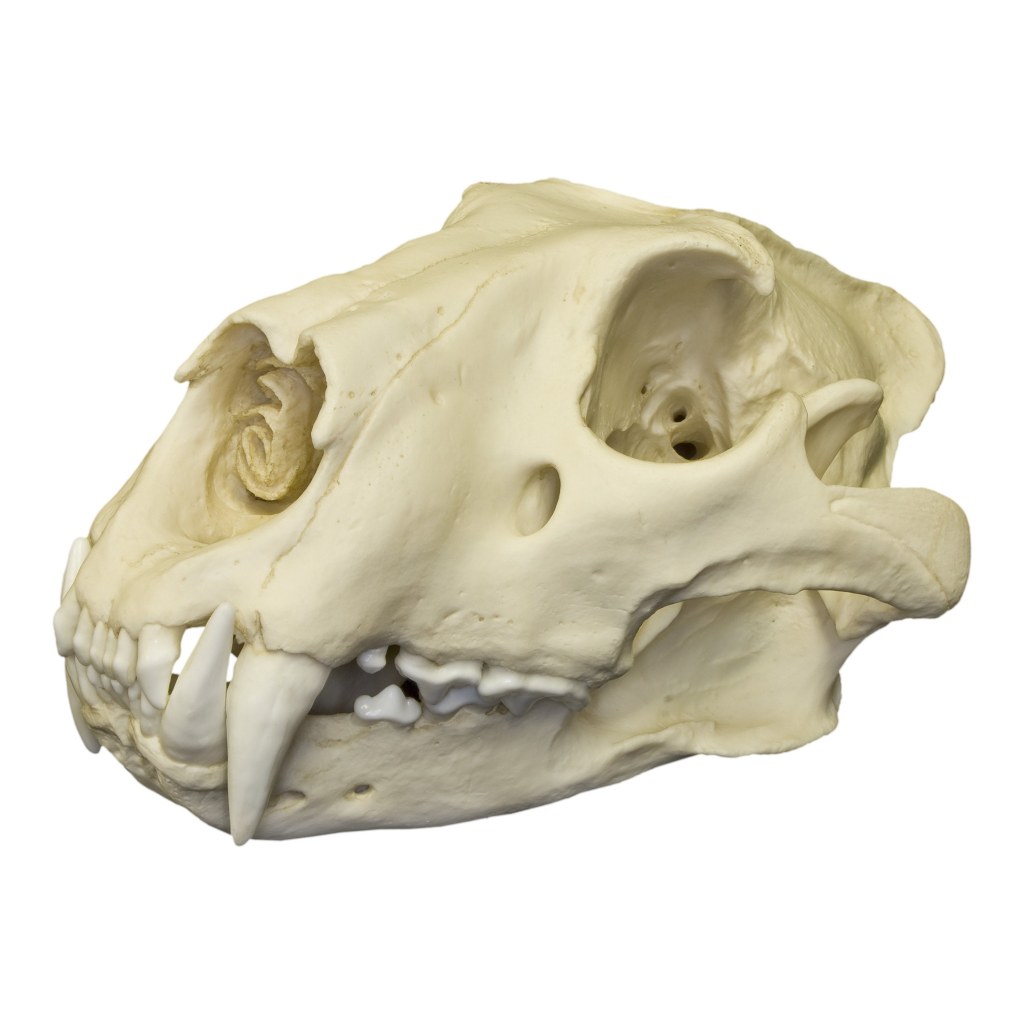The Majestic African Lion Skull: Unveiling The Secrets Of Wildlife’s Crown Jewel
African Lion Skull: Unraveling the Mysteries of the King of the Jungle
Introduction
Good People,
Welcome to this in-depth exploration of the African lion skull, the majestic and iconic symbol of power in the animal kingdom. In this article, we will delve into the fascinating anatomy, history, and significance of the lion skull, shedding light on its secrets and unraveling the mysteries that surround it. Lions Enthusiast, prepare to be captivated by the wonders of the king of the jungle’s cranium.
1 Picture Gallery: The Majestic African Lion Skull: Unveiling The Secrets Of Wildlife’s Crown Jewel

Before we embark on this journey, let’s first understand the basics. The African lion (Panthera leo) is a regal creature known for its majestic mane and fearsome roar. It is the second-largest big cat species and has a significant presence in African folklore, culture, and conservation efforts.
Now, let’s dive into the world of the African lion skull, where intriguing details await us.
What is an African Lion Skull?

Image Source: skullsunlimited.com
🦁 The African lion skull is the bony structure that encases the brain, sensory organs, and jaws of the lion. It is a remarkable piece of natural architecture, perfectly adapted to the lion’s predatory lifestyle and reflective of its evolutionary history.
The lion skull is characterized by its size, strength, and distinct features. The skull is elongated, with a pronounced sagittal crest and powerful jaw muscles, enabling the lion to deliver its bone-crushing bite. The eyesockets are large, accommodating the lion’s keen eyesight, while the auditory bullae house the specialized inner ear structures that enhance its acute hearing.
This extraordinary adaptation has allowed the African lion to become the apex predator in its habitat, possessing the tools necessary for survival in the harsh African savannah.
Who Uses the African Lion Skull?
🐾 Various groups and institutions utilize the African lion skull for different purposes. Researchers and scientists extensively study lion skulls to gain insights into their biology, behavior, and evolution. Museums and educational institutions display lion skulls as educational tools to showcase the intricate structure and adaptations of these magnificent creatures.
Artists, craftsmen, and collectors also value the lion skull for its aesthetic appeal and symbolic significance. Decorative lion skull replicas can be found in art galleries and private collections, representing strength, courage, and royalty.
When Did the African Lion Skull Emerge?
⏳ The African lion skull has ancient origins, dating back millions of years. Fossil evidence suggests that the lion’s evolutionary lineage diverged from other big cats around 1.9 million years ago. The modern lion skull, with its distinct adaptations for hunting and survival, emerged gradually over time through the forces of natural selection.
Throughout history, the lion skull has played a prominent role in human cultures, appearing in ancient cave paintings, sculptures, and mythological tales. It has left an indelible mark on human civilization for thousands of years.
Where Can You Find African Lion Skulls?
📍 African lion skulls can be found in various locations, including natural history museums, research institutions, and private collections. Many countries in Africa, such as Kenya, South Africa, and Tanzania, house lion skulls in their museums, highlighting the cultural and ecological importance of these magnificent creatures.
Additionally, online platforms and auction houses offer lion skulls for sale, primarily as replicas or educational specimens. However, it is crucial to ensure that any acquisition of lion skulls complies with legal and ethical guidelines to support conservation efforts and prevent illegal trafficking.
Why is the African Lion Skull Significant?
🌍 The African lion skull holds immense ecological, cultural, and scientific significance. Ecologically, the lion skull represents the apex predator, playing a vital role in maintaining the balance of ecosystems. As the top of the food chain, lions regulate herbivore populations, prevent overgrazing, and contribute to the overall health and diversity of their habitats.
Culturally, the lion skull carries deep symbolism. Throughout history, lions have been revered as symbols of strength, courage, and royalty in numerous cultures worldwide. The lion skull embodies these qualities, serving as a cultural icon and a source of inspiration for art, literature, and folklore.
From a scientific perspective, the lion skull provides valuable insights into the anatomy, evolution, and behavior of big cats. Researchers study the skull’s structure to understand the lion’s feeding habits, social dynamics, and adaptations to different environments. Such knowledge contributes to conservation strategies and efforts to protect these magnificent creatures.
How Does the African Lion Skull Benefit Humans and the Environment?
🌿 The African lion skull benefits humans and the environment in various ways. Firstly, lions play a crucial role in ecotourism, attracting visitors from around the world and providing economic opportunities for local communities. The presence of lions in protected areas and national parks helps preserve biodiversity and supports conservation efforts.
Additionally, by studying the lion skull, scientists gain insights into the complex dynamics of predator-prey relationships and ecosystem functioning. This knowledge aids in the development of sustainable wildlife management strategies, enhancing the coexistence of lions and local communities.
Furthermore, the cultural significance of the lion skull fosters a sense of appreciation and respect for wildlife, promoting conservation awareness and inspiring future generations to protect these magnificent creatures and their habitats.
Pros and Cons of the African Lion Skull
Pros:
1. Insight into lion behavior and adaptations.
2. Symbolic representation of strength and royalty.
3. Educational tool for learning about anatomy and evolution.
4. Cultural significance and inspiration for art and literature.
5. Contribution to ecological balance and conservation efforts.
Cons:
1. Threat of illegal trafficking and poaching.
2. Ethical concerns regarding the acquisition of lion skulls.
3. Limited availability of authentic lion skulls.
4. Challenges in preserving and protecting lion populations.
5. Potential misinterpretation or misuse of cultural symbolism.
Frequently Asked Questions (FAQs)
1. Is it legal to own an African lion skull?
Yes, owning an African lion skull is legal in some countries, but it is essential to ensure that the acquisition follows all legal guidelines and supports conservation efforts.
2. Can I buy a real African lion skull?
Real African lion skulls can be difficult to find and are subject to strict regulations. Replica lion skulls are more widely available for educational or decorative purposes.
3. How much does an African lion skull cost?
The cost of an African lion skull varies depending on factors such as authenticity, condition, and rarity. Authentic skulls may command higher prices in the collector’s market.
4. Can I study the African lion skull as a part of biology or zoology research?
Absolutely! Many researchers and scientists study African lion skulls to gain insights into their biology, behavior, and evolutionary adaptations.
5. What conservation efforts are in place to protect African lions?
Various organizations and initiatives are dedicated to protecting African lions, including habitat conservation, anti-poaching measures, community engagement, and research to inform effective conservation strategies.
Conclusion
In conclusion, the African lion skull represents an extraordinary blend of natural adaptation, cultural symbolism, and scientific significance. From its majestic form to its vital ecological role, the lion skull captivates our imagination and reminds us of the importance of protecting these majestic creatures and their habitats. Let us cherish the African lion skull as a symbol of strength, courage, and the delicate balance of our ecosystems, ensuring that future generations can continue to be inspired by the king of the jungle.
Final Remarks
🦁 Lions Enthusiast,
As we conclude this journey through the world of the African lion skull, it is crucial to acknowledge the importance of responsible engagement with wildlife and conservation efforts. The information provided in this article is intended to foster appreciation, understanding, and respect for these magnificent creatures.
Remember, the lion skull is not merely an object of beauty or curiosity, but a reminder of the delicate equilibrium that exists in our natural world. Let us all play our part in safeguarding the future of the African lion and the diverse ecosystems they inhabit.
Roar for conservation, and let the spirit of the African lion skull guide us towards a harmonious coexistence with nature.
This post topic: Lions


